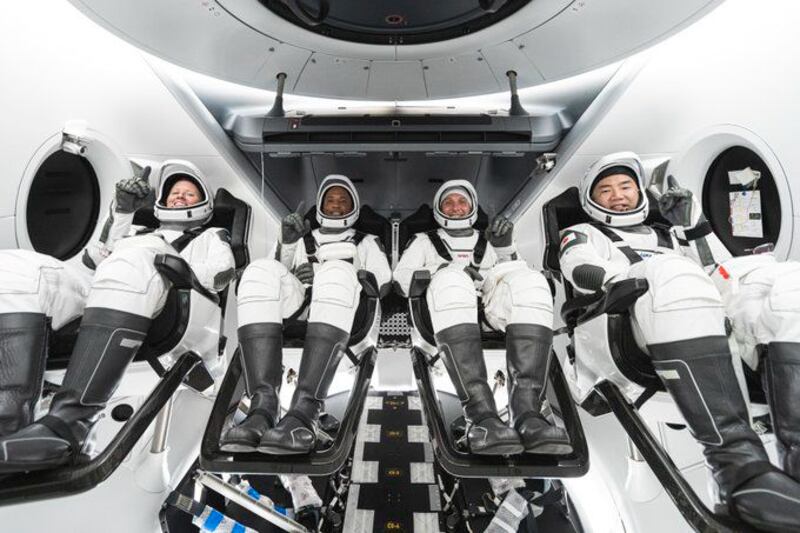KENNEDY SPACE CENTER, Fla. — SpaceX and NASA postponed the next crewed launch to the International Space Station.
The SpaceX Crew-1 mission to the International Space Station is now scheduled for launch no earlier than mid-November.
The Falcon 9 rocket and its crew were originally scheduled to liftoff from Kennedy Space Center on Oct 31.
We’re now targeting NET early-to-mid November for launch of @NASA’s SpaceX Crew-1 mission to the @Space_Station. The extra time will allow SpaceX to resolve an unexpected observation during a recent non-NASA launch attempt. More: https://t.co/sheWOD74m6 pic.twitter.com/YLq1Tb4LfN
— Kathy Lueders (@KathyLueders) October 10, 2020
According to officials, SpaceX will use this extra time to finish testing hardware and perform data reviews.
The SpaceX Crew Dragon spacecraft, named Resilience by the Crew-1 astronauts, will carry four astronauts to the International Space Station as part of NASA’s Commercial Crew Program.
The SpaceX Falcon 9 Crew-1 launch will mark the beginning of regular flights of astronauts from America to the International Space Station (ISS).
We’ve had 20 years of continuous human presence in space.
— Johnson Space Center (@NASA_Johnson) October 8, 2020
Over these 20 years, @NASA's Human Research Program has studied how the human body adapts to spaceflight & continues to learn & develop countermeasures for future missions. #SpaceStation20th
More at https://t.co/VzNwhsYGz2 pic.twitter.com/aS2fXwOAao
“We have a strong working relationship with our SpaceX partner,” said Kathy Lueders, associate administrator of NASA’s Human Exploration and Operations Mission Directorate. “With the high cadence of missions SpaceX performs, it really gives us incredible insight into this commercial system and helps us make informed decisions about the status of our missions. The teams are actively working this finding on the engines, and we should be a lot smarter within the coming week.”
🚀🚨The @SpaceX Falcon 9 Crew-1 mission to @Space_Station is now targeting no earlier than mid-November for launch.
— Kennedy Space Center Visitor Complex (@ExploreSpaceKSC) October 11, 2020
All previously purchased launch viewing packages will remain valid for this new launch attempt. 🎟
Stay tuned for updates! 👀
💻: https://t.co/wbhQwpUdyp pic.twitter.com/cocHt8KKge
In addition to the crewed mission, NASA continues to work with SpaceX and the Falcon 9 for other missions.
The Sentinel-6 Michael Freilich satellite launch still is scheduled for Tuesday, Nov. 10 from Vandenberg Air Force Base in California.
NASA’s SpaceX CRS-21 will launch sometime in late November or early December from Cape Canaveral Air Force Station.
Read: WATCH: SpaceX successfully launches 60 Starlink satellites
NASA’s SpaceX Crew-1 mission will launch NASA astronauts Michael Hopkins, Victor Glover, and Shannon Walker, along with Japan Aerospace Exploration Agency (JAXA) mission specialist Soichi Noguchi, from Launch Complex 39A at NASA’s Kennedy Space Center.
Once aboard the International Space Station, the astronauts of Crew-1 will get the opportunity to see a number of unpiloted spacecraft including the Northrop Grumman Cygnus, the next generation of SpaceX cargo Dragon spacecraft and the Boeing CST-100 Starliner on its uncrewed flight test to the station.
Read: Want to become a NASA astronaut? Here are 9 things you need to know
They will also take part in a variety of spacewalks, and welcome crews of the Russian Soyuz vehicle and the next SpaceX Crew Dragon in 2021.
The astronauts will stay on the International Space Station for 6 months before returning to Earth.
Cox Media Group






